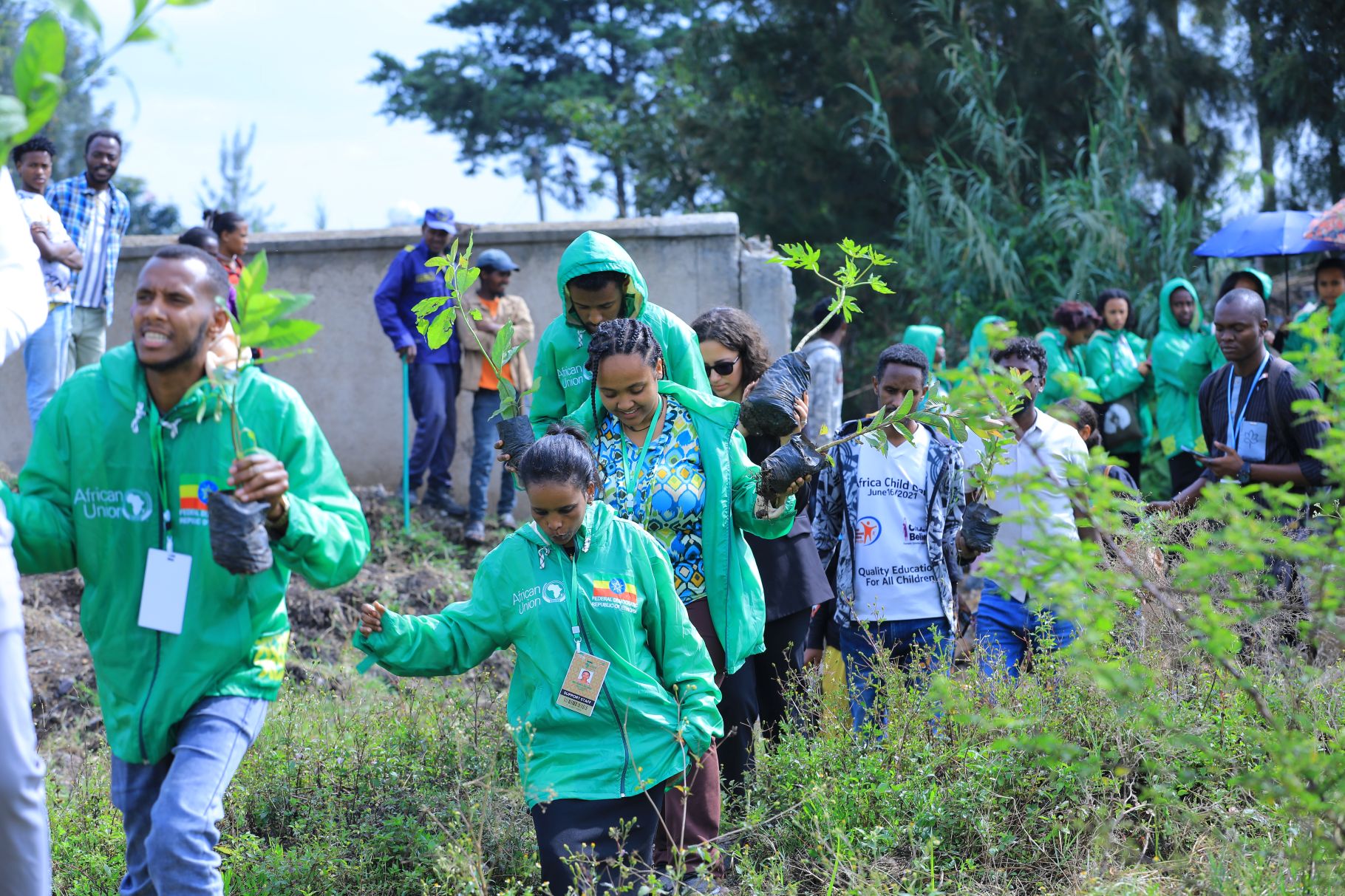COP30 Youth Task Force mobilizes 200 Young People in Addis Ababa and Plants 300 Saplings at Africa Climate Summit
Fighting climate change in practice: African youth unite for reforestation and demonstrate the power of mobilization to solve global problems.

By the Youth Climate Champion Team
More than 200 volunteers from the Africa Climate Summit took part in a reforestation effort in Addis Ababa, Ethiopia, which led to the planting of 300 fruit tree saplings on the campus of Addis Ababa Science and Technology University (AASTU). The activity was part of the COP30 Task Force, an initiative aimed at promoting youth leadership in the global climate agenda.
A partnership between UNICEF (United Nations Children's Fund) and the COP30 Youth Champion, Marcele Oliveira, the initiative also featured the participation of Leyla Hassanova, the Youth Champion at COP29. Young people of various ages and regions came together in a collective effort that symbolizes the rising generation’s ability to mobilize around climate justice.
The Task Force (known in Portuguese as Mutirão) aligns with the priorities of COP30, which will take place in Belém, Brasil, in November 2025. At the heart of the COP30 Presidency’s agenda are strengthening social participation, promoting intergenerational equity, elevating the role of young people, and advancing practical solutions for adapting to and mitigating the climate crisis.
"Young people are at the heart of the COP30 Action Agenda and at the forefront of the fight for climate justice. Indigenous youth, Afro-descendants, Quilombolas, traditional peoples and communities—together with girls and women—are working daily in their territories to secure funding, expand green spaces, advance public policies, and address many other issues that shape everyday life. The task force in Addis Ababa demonstrates that collective mobilization can deliver concrete results and inspire new initiatives across the globe."
The Task Force seeks to amplify and connect the efforts of children and young people worldwide, bringing visibility to local initiatives and fostering global cooperation on the climate agenda. It also serves as a trilingual platform—available in English, Portuguese, and Spanish—created to map and expand the actions of youth, children, organizations, and collectives across the globe. Its message to decision-makers is clear: the front lines of the climate crisis are being led by children and young people.
